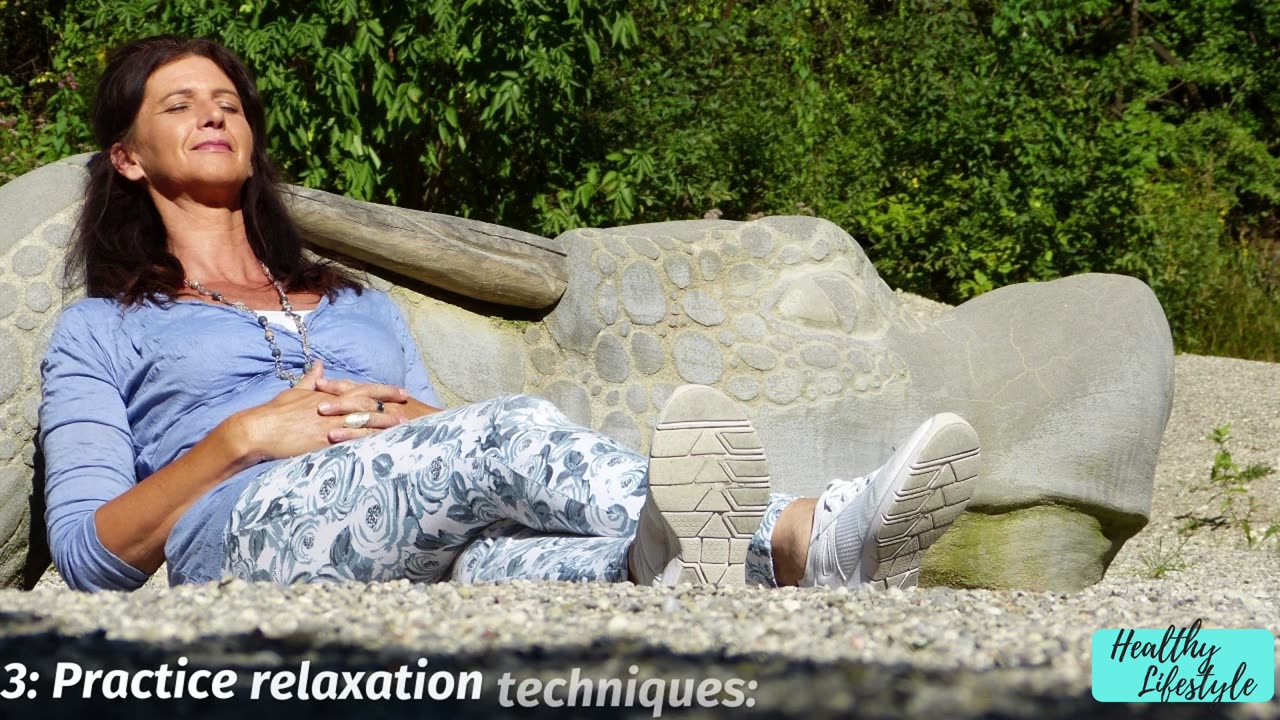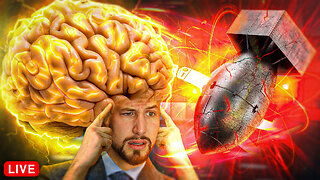Premium Only Content

Remedies for Migraines
Rest and Relaxation: Find a quiet, dark room to rest in during a migraine attack. Lie down, close your eyes, and try to relax your body as much as possible.
Apply Cold or Heat: Applying a cold compress or ice pack to the head or neck area can help numb the pain and reduce inflammation. Some individuals find relief from using a heating pad or warm towel instead.
Stay Hydrated: Dehydration can trigger or exacerbate migraines, so it's essential to drink plenty of water throughout the day. Avoid caffeinated and alcoholic beverages, as they can contribute to dehydration.
Massage Therapy: Gentle massage or self-massage of the temples, neck, and shoulders can help relieve tension and alleviate migraine symptoms.
Essential Oils: Certain essential oils, such as peppermint, lavender, and eucalyptus, may provide relief from migraine pain when applied topically or inhaled. Dilute the essential oils with a carrier oil and apply to the temples, forehead, or neck.
Acupressure: Apply pressure to specific acupressure points on the body, such as the space between the thumb and index finger (known as LI-4), to help relieve migraine pain and discomfort.
Herbal Remedies: Some herbs and supplements, such as feverfew, butterbur, magnesium, and riboflavin (vitamin B2), have been studied for their potential to reduce the frequency and severity of migraines. Consult with a healthcare professional before trying any herbal remedies or supplements.
Biofeedback: Biofeedback techniques, such as deep breathing exercises, progressive muscle relaxation, and guided imagery, can help manage migraine symptoms by promoting relaxation and stress reduction.
Over-the-Counter Medications: Non-prescription pain relievers such as ibuprofen (Advil, Motrin), naproxen (Aleve), or acetaminophen (Tylenol) may provide relief for mild to moderate migraines. Follow the dosage instructions carefully and avoid overuse to prevent medication overuse headaches.
Prescription Medications: If over-the-counter remedies are ineffective or migraines are severe and frequent, prescription medications such as triptans, ergotamines, or preventive medications may be prescribed by a healthcare professional.
It's important to note that not all remedies will work for everyone, and it may take some trial and error to find the most effective treatment for your migraines. Additionally, consult with a healthcare professional for personalized advice and treatment options tailored to your specific needs.
-
 15:08
15:08
NinjaGamblers
17 hours ago $0.41 earnedAggressive Fisher's Method at Roulette: How to Win $600 in an Hour
4.44K5 -
 1:12:44
1:12:44
TheDozenPodcast
17 hours agoTerrorist MACHETE attack left me for dead: Tal Hartuv
8.78K3 -
 6:06
6:06
scoutthedoggie
1 day agoAirsoft Warfare Scotland
5.19K1 -
 6:15:31
6:15:31
SpartakusLIVE
13 hours ago#1 BIG BRAIN releases the FULL POWER of his CEREBRAL DOMINANCE
114K10 -
 57:19
57:19
Man in America
20 hours ago🚨 Disaster Expert: Weather Warfare Hasn't Stopped Under Trump—Are You Ready for What's Coming?
65.3K140 -
 1:32:38
1:32:38
elwolfpr
12 hours agoHappy Sunday COD Night: Rumble Stream LIVE!
95.6K8 -
 5:40:13
5:40:13
412 Productions
12 hours ago $6.36 earnedSunday night gaming - 7 Days to Die
59.8K4 -
 2:16:02
2:16:02
Nerdrotic
14 hours ago $19.45 earnedUFO Reality Revealed | New Homos | Jacques Vallée Remote Viewing | Forbidden Frontier #094
80.7K23 -
 1:06:38
1:06:38
Cooking with Gruel
1 day agoCooking with Michael Franzese
37.6K5 -
 16:53
16:53
Chris From The 740
17 hours ago $7.52 earnedMec-Gar Glock Mags Review: Don't Believe The Hype!
59.3K15